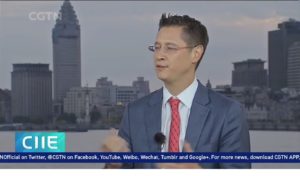 |
| Shaun Rein |
The BBC:
The world's biggest supplier of generic drugs has restricted exports of 26 ingredients and the medicines made from them.
The restricted drugs include Paracetamol, one of the world's most widely-used pain relievers.
It comes as many drug ingredient makers in China remain shut or cut output. India's drug makers rely on China for almost 70% of the active ingredients in their medicines, and industry experts have warned that they are likely to face shortages if the epidemic continues.
"Even drugs that aren't produced in China get their base ingredients from China. Globally there could be a shortage if China and India both get hit," warned analyst Shaun Rein from the China Market Research Group.
The list of ingredients and medicines accounts for 10% of all Indian pharmaceutical exports and includes several antibiotics, such as tinidazole and erythromycin, the hormone progesterone and Vitamin B12.More at the BBC.
Shaun Rein is a speaker at the China Speakers Bureau. Do you need him at your meeting or conference? Do get in touch or fill in our speakers' request form.
Are you looking for more experts to manage your China risk at the China Speakers Bureau? Do check out this list. Is the coronavirus disrupting your China meeting? Do check out if the China Speakers Bureau can help you.
At the China Speakers Bureau we have started to explore WeChat Work as a social platform, next to Twitter, Facebook and LinkedIn. Are you interesting in following us on this journey? Check out our instructions here.
